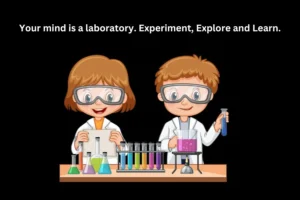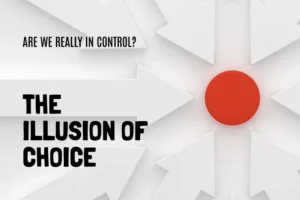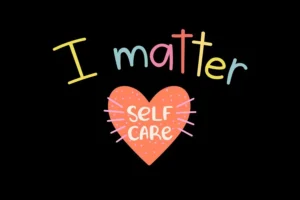Is your mind filled with negative thoughts? Perhaps Beck Cognitive Triad could provide the answer. From this article, you will learn about Aaron Beck discoveries in cognitive therapy and hear about the meaning of the cognitive triad for depression. As you learn more about the three parts of the triad, you will be able to see how your self-image, views about the world, and the future are influenced. By the end of this guide, you will be able to get realistic tips and techniques to deal with such detrimental thought processes. So you don’t have to worry, feel happy, and let’s go deeper into your thoughts.
Table of Contents
Introduction to Beck Cognitive Triad
Aaron Beck, one of the founding fathers of cognitive therapy, has changed the paradigm of depression. His approach concerns the way our thoughts affect our feelings and actions. Beck pointed out that people with depression have negative and distorted cognitions of self, future, and world. These three thought patterns are collectively referred to as Beck Cognitive Triad.
The cognitive theory of depression proposed by Beck indicates that altering the negative way of thought eliminates depressive symptoms. By overcoming these distorted thoughts and replacing them with more realistic and positive thoughts, an individual can enhance the way he/she feels.
Statistics Related to Beck Cognitive Triad and Depression

- Currently, over 264 million people worldwide experience depression.
- Depression has been ranked as the number one disability globally.
- Currently, more than 70% of therapists worldwide use Cognitive Behavioral Therapy, including Beck Triad, in their work.
- Cognitive theories by Aaron Beck have been incorporated in more than 25000 research papers globally.
- CBT can help in reducing the symptoms of depression by 60% in 12-16 weeks of therapy.
- The results of the study showed that patients who received CBT had a lower relapse level of about 30% compared to the patients who received medication alone, with a relapse level of about 60%.
- Self-critical thinking is less prominent in collectivist cultures in East Asia than in individualist cultures in Western countries.
- Worldwide, depression costs about $1 trillion yearly in terms of lost output alone.
- In the UK, depression costs the economy £7. 5 billion annually.
Beck Cognitive Triad
What are the Three Components of Beck’s Cognitive Triad?
Beck Triad, an integral part of the cognitive theory of depression, identifies three entities linked that make up a person’s view of the world, self, and future. All these components provide insights into how depression can occur and maybe even be sustained.
1. Negative View of the Self
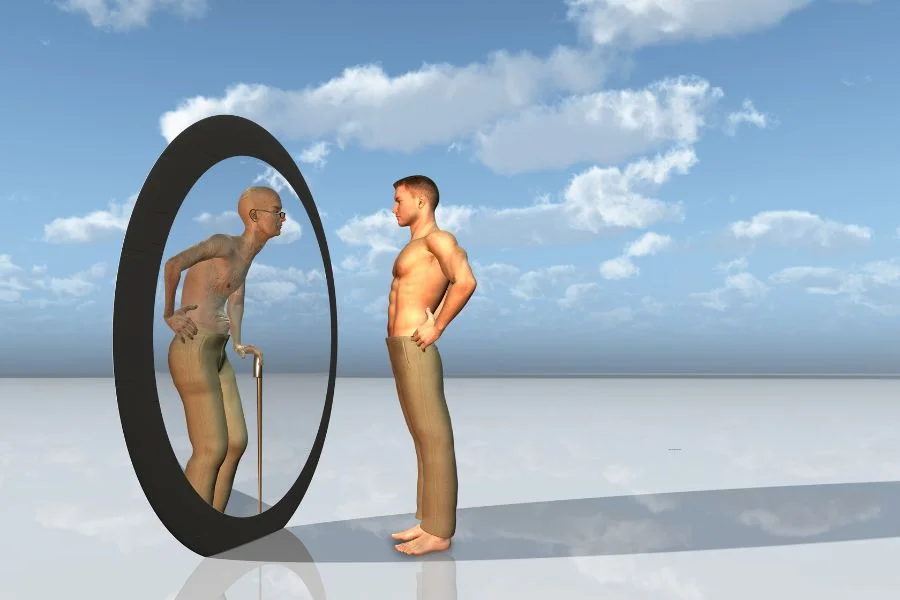
This component requires individuals to perceive themselves in a negative and demeaning manner. They may have low self-esteem and consider themselves worthless, unhappy, or incapable of being successful. This negative self-perception can greatly affect their self-esteem and confidence, resulting in feelings of hopelessness.
2. Negative View of the World

Here, people are inclined to experience the world as a negative, adverse, or unjust place. They might perceive ordinary events, interpersonal encounters, and societal occurrences negatively. This negative view of the world also supports their pessimistic view of life as difficult and unfulfilling, which can lead to even more loneliness and despair.
3. Negative View of the Future

This component is pessimistic about the future. Patients with depression have a tendency to expect that their future is going to be gloomy, with more suffering, failure, or disappointment. Such negative outlook concerning their future may reduce their desire to achieve goals, participate in activities they used to find enjoyable, or even nurture relationships, thus creating a cycle of pessimistic thinking and emotional disengagement.
Beck negative cognitive triad postulates that these negative views are mutually self-reinforcing. For example, a distorted perception of the self as inferior will affect how the person perceives his/her interactions with others and the future prospects for improvement.
Related Reading: Cognitive Triad: Learn How Thoughts Shape Your World
Beck Cognitive Triad Examples
Here are real-life examples of each component of Beck cognitive triad of depression:
- Negative Thoughts about Self: A girl scolds herself when she makes a small mistake at work, feeling that she is incompetent, even if her colleagues and supervisors say otherwise. These are feelings of low self-worth and lack of self-entitlement to success.
- Negative Thoughts about the World: A girl observes that the news mainly covers crime and disasters. Initially, she perceives the world as evil and unjust; she always expects the worst to happen and that nothing can change for the better.
- Negative Thoughts about the Future: A girl is overly concerned with the approaching examinations. She makes herself believe that she will fail, picturing worst-case scenarios such as failing to be enrolled in college or letting down her family.
These negative thoughts can manifest in daily life in several ways:
- Emotional Impact: They may cause chronic cases of depression, anxiety, or anger.
- Behavioral Changes: Shying away from social engagements, chores, or other obligations because one feels that they will fail or be rejected.
- Physical Symptoms: Depression may lead to insomnia, fatigue, or changes in appetite due to constant worrying and stress.
Related Reading: Snyder’s Hope Theory: Rise from Ashes to Glory
Beck’s Cognitive Theory of Depression
In the general framework of Beck cognitive theory of depression, negative schemas are understood as cognitive biases. Suppose such cognitive distortions are corrected and their patterns altered. In that case, people can avoid getting trapped in the depressive triad and the manifestations of depression.
Cognitive Distortions in Beck Cognitive Theory of Depression

1. Over-generalizations
Making generalized negative assumptions based on one event or an element of evidence. Example: If a person fails one test, they may start to have negative cognition such as “I can never do anything right.”
2. Catastrophizing
This refers to the anticipation that the worst will happen in any given scenario. Example: This can occur if there is an overgeneralization of consequences such as: “If I mess up at work today, I will be fired, and I will never get a job again,” when the mistake is simply a minor one.
3. Black-and-White Thinking (All-or-Nothing Thinking)
A black-and-white attitude of perceiving situations and people without acknowledging the existence of a grey area. Example: Having thoughts like ‘I am not perfect; therefore, I am a complete failure’ while not considering any accomplishments or some level of achievement.
4. Mental Filtering
Refusing to see any good in a situation or circumstance while dwelling solely on the bad aspects. An example is getting both compliments and suggestions but focusing only on the negative aspects.
5. Disqualifying the Positive
Dismissing positive events or accomplishments by saying that they do not count. Example: When someone compliments, they respond with: “Oh, they are only flattering me; it wasn’t that awesome.”
6. Labeling
Labeling oneself or others as negative or assigning negative traits due to one instance or behavior, such as saying you are “such a failure” when you make a mistake at work.
Key Research and Studies Supporting this Theory
According to Beck cognitive theory, key research establishes a positive relationship between scores on the negative triad and the severity of depression. For example, Lewinsohn et al. (1981) observed that patients who were more inclined to negative automatic thoughts were likely to develop depressive symptoms.
Beck’s Cognitive Therapy
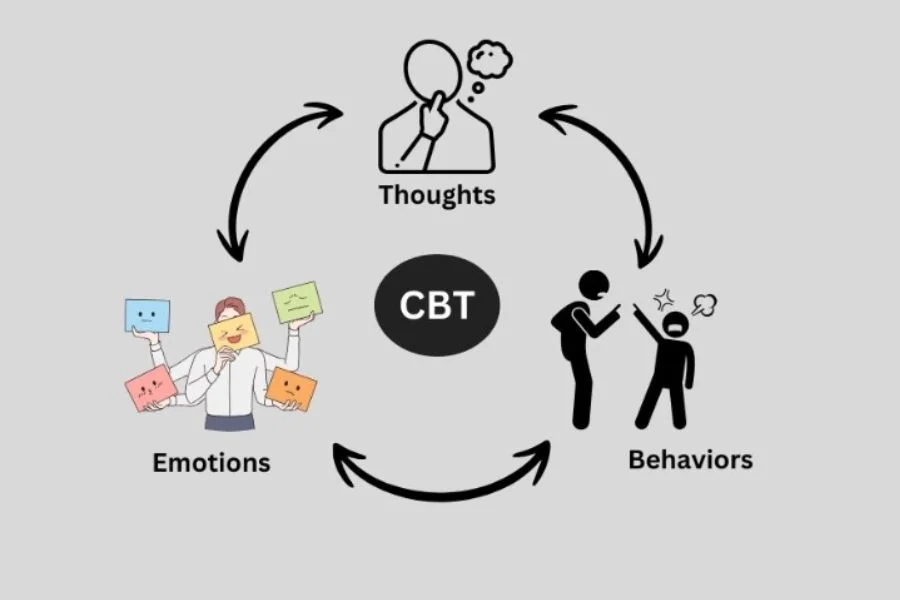
Beck Cognitive Therapy is a type of psychological treatment that Aaron Beck created. It focuses on identifying specific negative patterns of thinking and acting and replacing them with more constructive ones. Beck cognitive therapy helps individuals identify and challenge negative thoughts such as:
- Hopelessness
- Cognitive bias
- Psychological vulnerability
- Negative experiences
- Negative attributional style
- Negative self-schemas
- Dysfunctional beliefs
- Maladaptive beliefs
Read More: Understanding Cognitive Behavioral Therapy: A Comprehensive Guide
Techniques Used in Beck Cognitive Therapy
1. Cognitive restructuring
This technique is all about changing the way you think. Depression involves having automated negative thoughts running through the mind all the time. For instance, a person will develop a belief such as “I am a failure.” Cognitive restructuring assists the person in recognizing such thoughts as negative thoughts and challenging them. Are they a failure, or have they failed? In this way, they are able to modify these negative thoughts with healthy ones such as “I have blundered, but I can improve.”
2. Behavioral activation
People undergoing depression are likely to withdraw from the activities that they find meaningful and pleasurable, which can make them feel even worse. Behavioral activation helps them restart these activities again. It could be going for a walk, meeting up with a friend, or focusing on a project. The objective is to get more moments of happiness and reduce the moments of sadness. Engaging in enjoyable tasks can make a person feel happier and experience the feeling of having accomplished something.
3. Homework assignments
This means that the therapy process is ongoing even outside of therapy sessions. Homework is an activity that is assigned as a means of practicing new ways of thinking and behaving at home. For example, one might write in a notebook to use cognitive restructuring or decide to perform a specific rewarding task to perform behavioral activation. Such assignments assist in helping change what is learned in therapy to become lasting.
Research Findings
Research has found that CBT incorporating Beck’s theory of depression is helpful in treating depression as well as other similar illnesses. Studies show that patients, first and foremost, tend to have a decrease in depressive symptoms, and that is why it is considered to be effective. Moreover, the cognitive model of depression can aid in the treatment of anxiety, Post Traumatic Stress Disorder, and eating disorders, thus making it a force to be reckoned with when it comes to the treatment of mental health disorders.
Conclusion
Aaron Beck Cognitive Triad can explain depression. It includes negative attitudes toward the self, the world, and the future. The triad further explains and elaborates on how these negative thoughts are in real life and how they impact everyday living. The triad forms part of Beck’s Cognitive Model of Depression in relation to the formation and sustenance of depression. This theory is also supported by research and is given much importance.
Cognitive Therapy by Beck has principles and techniques that can be used to treat depression and has withstood the test of time. It is employed to treat numerous psychological disorders and focuses on the concept of negative thinking.
Pro Tip From Basics of Psychology
It is recommended that mindfulness techniques be combined with Beck’s Cognitive Therapy. Mindfulness assists individuals in remaining attentive, thus minimizing the effects of negative cognition. It can complement cognitive therapy and help the person have a more positive attitude in life. By integrating these approaches, a more holistic care model can be created.




